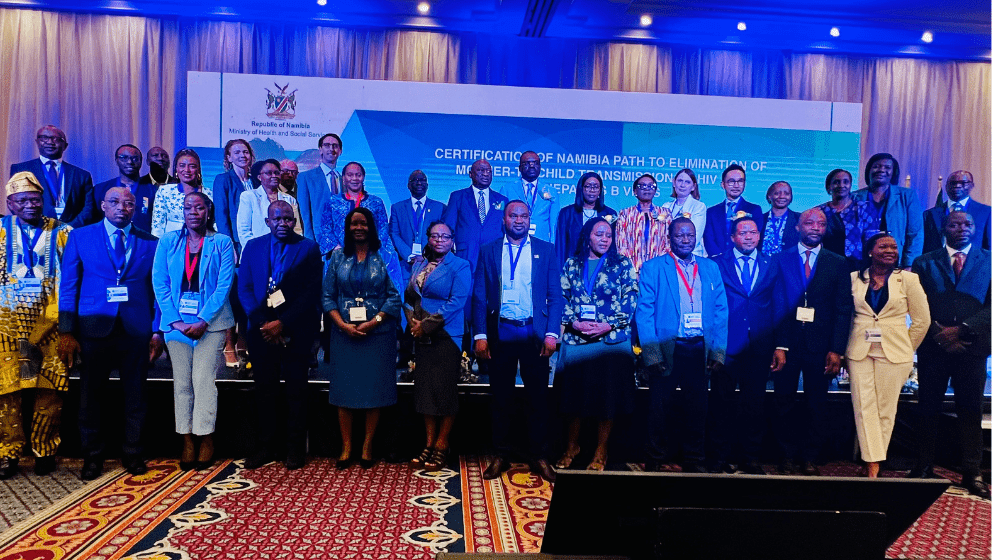WINDHOEK, Namibia – Namibia has been awarded the “silver tier” status for progress on reducing hepatitis B and the “bronze tier” for progress on HIV by the World Health Organization (WHO) on 6 May 2024. This achievement makes Namibia the first country in Africa – and the first high-burden country in the world - to reach a significant milestone on the path towards eliminating vertical mother-to-child transmission of both HIV and viral hepatitis B.
Namibia’s success in curbing mother-to-child transmission of HIV and hepatitis B is monumental. With over 200,000 people living with HIV in Namibia, the country’s efforts have led to a 70% reduction in vertical transmission over the past 20 years. In 2022, only 4% cent of babies born to mothers living with HIV acquired the virus. Almost 80% of infants received a timely birth dose of the hepatitis B vaccine, one of the key metrics of success on the path to elimination.
The country has integrated primary health care with antenatal, child health and sexual and reproductive health services. The government committed stable domestic finance to national health programmes, offering widely accessible, quality and free-of-charge clinical services and support.
Namibia’s achievement follows a concerted strategy to curb the transmission of hepatitis B, HIV and syphilis. WHO's Triple Elimination Initiative aims to safeguard the health of mothers and children and affirm the rights of every child to be born free from the burden of these viruses.
The validation process, led by WHO in collaboration with the United Nations International Children's Emergency Fund (UNICEF), Joint United Nations Programme on HIV/AIDS (UNAIDS) and United Nations Population Fund (UNFPA), evaluates data and standardises milestones for eliminating diseases. Among other factors, WHO certifies a country as having attained silver tier status when the hepatitis B vaccine is given to 50% or more newborn babies. Bronze certification is awarded to countries which have reduced the vertical transmission of HIV from mother to child to less than 5%.
This is a landmark achievement that demonstrates the life-saving possibilities of committed political leadership and effective implementation of public health priorities.
“This is a landmark achievement that demonstrates the life-saving possibilities of committed political leadership and effective implementation of public health priorities,” said Dr Matshidiso Moeti, WHO Regional Director for Africa at the occasion of the certification ceremony on 6 May 2024.
Prime minister Saara Kuugongelwa-Amadhila in her remarks said this recognition does not only speak to the important work done by the Namibian government in this subsector of public health and the healthcare professionals who have dedicated their lives to this cause, but it is also a testament to the resilience, unity and unwavering commitment of the Namibian people as a whole and the immense support that Namibia has received from development cooperation partners over the years.
“For a country with a high HIV and hepatitis B virus burden to be recognised to be on the path to elimination of these diseases is a significant achievement. These achievements came after many years of investments to offer free services and deliberate consistent actions in the PMTCT programme,” said Minister of Health and Social Services (MoHSS) Dr Kalumbi Shangula.
In addition to being part of the national validation committee, UNFPA has worked with MoHHS and partners to strengthen the integration of Family Planning (FP) services into HIV, Sexually Transmitted Infections (STIs), and Maternal, Newborn, and Child Health (MNCH) service delivery. Furthermore, UNFPA has been instrumental in enhancing FP services at the community level. UNFPA's efforts in promoting comprehensive reproductive health services have played a vital role in contributing to Namibia's remarkable achievements in reducing mother-to-child transmission of HIV and hepatitis B.



